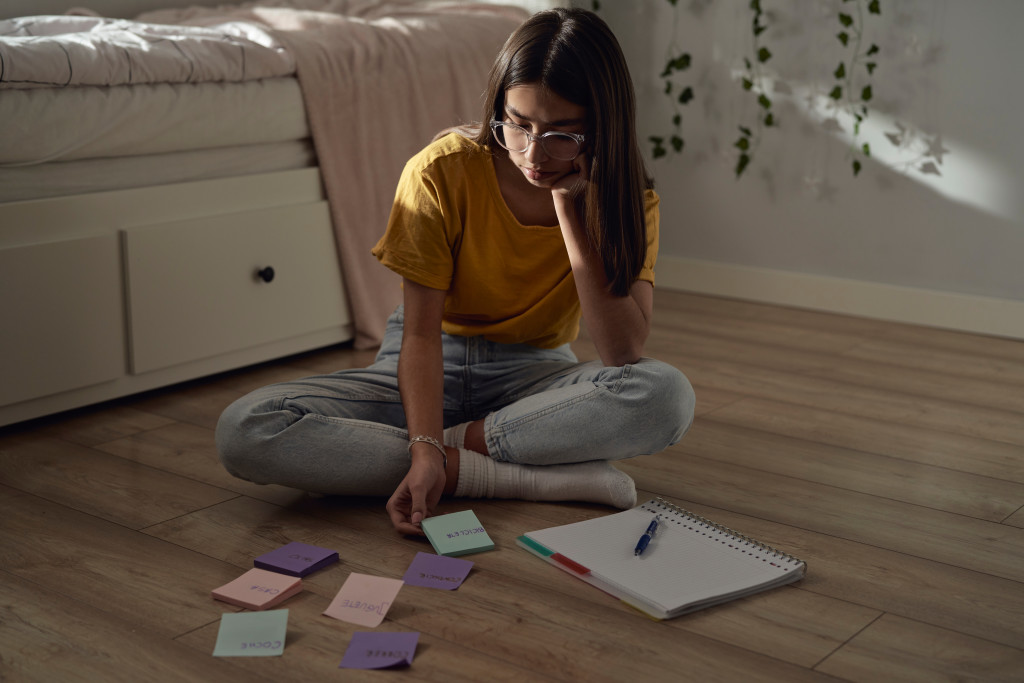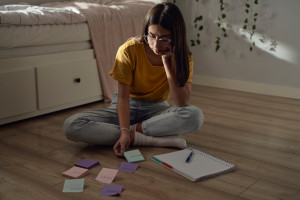A respected colleague recently posted a study about making flashcards.
The basic question: should students make their own flashcards, or use premade flashcards?
In my experience, people really like the answer “students should make their own.” This approach feels more active/good, compared with the passive/bad strategy of using someone else’s.
I have had two concerns with this popular answer.
First: how will students know what flashcards to make? Because students don’t know what they don’t know, they probaby don’t know what they should be studying with flashcards.
Second: making flashcards takes time. If students have only 30 minutes to study, and spend 5-10 of those minutes making cards, then they have much less time to review.
And, as I wrote back in March of 2023, the most on-point study I could find confirmed those suspicions. Students who made their own flashcards did not learn more — although they DID spend more time.
If you can learn the same amount in less time, why not do that?
For all these reasons, I was surprised to read the title of the study my friend recommended:
“User-Generated Digital Flashcards Yield Better Learning Than Premade Flashcards”
What’s going on? Have I been giving you bad advice?
A Feature, Not a Bug
Before I explore this new study — led by Dr. Steven Pan — I want to focus on the seemingly vexing problem of conflicting studies.
That is: Lin & McDaniels’ study from 2018 says “making your own flashcards DOESN’T help you learn.” Pan’s study from 2024 says “making your own flaschcards DOES help you learn.”
What’s going on here?
I started coming to Learning and the Brain because I wanted research-based answers to my teaching questions. (Perhaps you started coming for the same reason.)
The process, I thought, would go like this:
I have a question.
Researchers tell me the correct answer.
I do what the researchers tells me.
So simple.
Here’s the problem. Psychology is complicated. People are COMPLICATED. Teaching and learning are COMPLICATED.
When we start using psychology research methods to study people who are teaching and learning, we’re studying fantastically complicated systems.
OF COURSE we get contradictory answers to specific questions.
This result doesn’t mean something is wrong or broken. It means that we’ve done enough research to unearth the genuine complexity of the questions we’re exploring: psychology + people + teaching + learning.
The fact that we’ve found contradictory results means that we’re doing this right. In other words: if all the research I find tells me the same thing, I probably haven’t looked at enough research.
So: if contradictory findings are the norm, what do we actually do in our classrooms?
Well: we start by looking at the specifics of the research…
Specifics of the Research
I’ve got two different studies with contrasting headlines. To resolve the differences, let’s get specific.
First, Pan’s research team executed all the steps we want them to.
They’ve got precise hypotheses and control groups and abstruse calculations and colorful graphs. The conflict between Lin (2018) and Pan (2024), in other words, doesn’t result from unprofessional work.
Over the course of their six studies, Pan’s team found that students remembered more when they came up with their own definitions of words than they did when they used flashcards with pre-written defintions.
Likewise, students remembered more when they wrote their own examples on flashcards than when they used pre-written examples.
And so forth.
So: YES, students spent more time making their own cards. But because they thought harder while they did so, they ultimately remembered and applied the concepts better 2 days later.
How then can we explain the difference between the two studies?
Focus, Focus, Focus
Because these two studies are different, we can — of course! — find lots of differences.
Here’s a key difference in my view:
In the (2024) Pan study, the researchers told the students which words to study.
In the (2018) Lin and McDaniel study, they didn’t.
So, students learn more useful stuff when we tell them what stuff is useful — that’s the recent Pan study.
They don’t learn more useful stuff when they decide on their own what’s useful — that’s the older Lin & McDaniel study.
My own hypothesis, thus, goes like this:
Students will probably learn more from substantive flashcards that they generate (paraphrase, examples, etc.) than from pre-written flashcards … as long as they get good guidance about the terms and concepts that merit flashcards.
In the absence of that guidance, they probably won’t learn more — because the pre-written flashcards will focus on more useful words and concepts.
Now, my hypothesis hasn’t been tested directly, as far as I know. But it both makes sense and explains the differences between these sets of studies.
TL;DR
Should students make their own flashcards?
As long as
First: they generate new information (rather than simply copying it down), and
Second: we tell them which words and concepts merit flashcards,
then, probably yes.
Given the complexity of this research field, however, we should probably keep our eyes out for further research.
Pan, S. C., Zung, I., Imundo, M. N., Zhang, X., & Qiu, Y. (2022). User-generated digital flashcards yield better learning than premade flashcards. Journal of Applied Research in Memory and Cognition.





